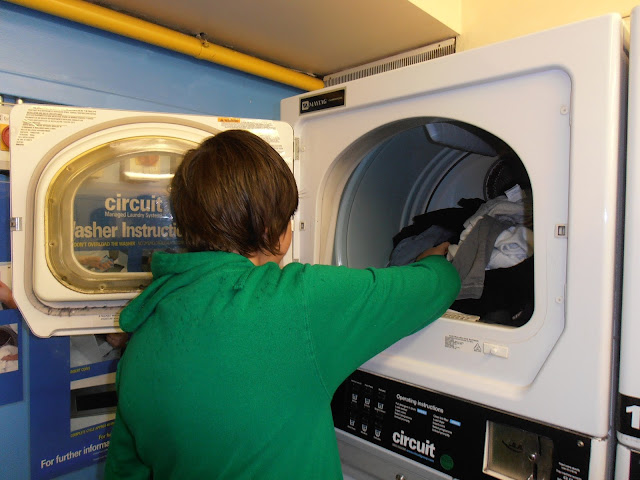Vacanza studio? Perché? Com'è? Dove?
Ogni anno nei mesi estivi di pausa tra un anno scolastico e l'altro molti studenti partono per destinazioni varie con la speranza di divertirsi e, magari, di migliorare anche la loro conoscenza della lingua inglese.
La VACANZA STUDIO, così come viene definita, non è certo un' invenzione degli ultimi anni. Lo sanno bene gli insegnanti, i genitori e gli studenti.
Correva l'anno 1992 quando una "Miss Alex" adolescente saliva per la prima volta su un aereo insieme ai suoi compagni di scuola e alla sua professoressa di inglese con destinazione.... gli Stati Uniti d'America. Parliamo di ventisei anni fa. Anche allora, come oggi, vacanze studio.
Molte cose sono cambiate ma molte altre no. L'entusiasmo misto a preoccupazione che ho provato io a 16 anni nel 1992 è lo stesso che oggi rivedo nei miei studenti quando li accompagno in vacanza studio. Sì perché mentre nel 1992 ero io la giovane studentessa impaurita ed incuriosita, oggi mi trovo a vivere la stessa esperienza ma da un punto di vista completamente diverso.
Da parecchi anni accompagno i miei ragazzi in queste meravigliose esperienze ed essere testimone di questo loro primo approccio con il mondo reale anglofono é per me un onore che ogni anno mi arricchisce di motivazione e di entusiasmo.
Preferisco parlare di ESPERIENZA perché credo che la vacanza studio sia una occasione di crescita personale, un momento altamente formativo per i ragazzi, una possibilità unica che va colta e sfruttata nella sua totalità.
I bambini e i ragazzi di oggi hanno sicuramente molte più possibilità di viaggiare e di andare all'estero rispetto a quelle che potevo avere io nel 1992. Una vacanza studio però non è semplicemente un viaggio. Ciò che fa da subito la differenza è l'alloggio. Quante possibilità avrebbero i nostri ragazzi di vivere una settimana o quindici giorni in un college inglese o americano? Mi riferisco agli storici college vittoriani inglesi o ai moderni campus universitari americani.
 |
| UCD DUBLIN (IRELAND) |
EMMANUEL COLLEGE, BOSTON (USA)
EMMANUEL COLLEGE, BOSTON (USA)
CATS COLLEGE, CANTERBURY (UK)
CATS COLLEGE, CANTERBURY (UK)
CATS COLLEGE, CANTERBURY (UK)
SCHOOL CANTEEN, CANTERBURY (UK)
SCHOOL CANTEEN, UCD DUBLIN ( IRELAND)
Vivere in un college è un'esperienza indimenticabile e unica. Sia che si tratti di una BOARDING SCHOOL con camere da 4/5 letti e bagni al piano oppure di un CAMPUS universitario con camere singole in mini appartamenti e bagno privato, è sempre e comunque un'esperienza unica. Per un ragazzo o ragazza dagli undici ai diciotto anni spesso significa doversi gestire per la prima volta da soli, senza genitori che sistemano la camera o che chiudono la camera e tengono la chiave al sicuro. Sì perché le camere nei college si aprono e chiudono con il badge ed è responsabilità di ogni singolo studente conservare il badge e ricordarsi.... di non chiudere la camera con la chiave dentro! E se succede? Bisogna andare nell'ufficio del manager, spiegare la situazione e farsi dare una nuova chiave. Ci pensa la profe? No! Questo significa fare ESPERIENZA FORMATIVA, questo significa crescere. Imparare ad assumersi delle responsabilità, imparare a gestire delle piccole quotidiane difficoltà. Da docente e accompagnatore vi assicuro che la soddisfazione che un ragazzo può avere quando ti mostra la nuova chiave è impagabile. Essere testimone di questi momenti di crescita è impagabile.

Imparare a gestire i propri effetti personali è ESPERIENZA FORMATIVA
Vivere in un college o campus significa anche fare esperienze nuove, diverse. Significa provare cibo diverso, sperimentare ed apprezzare nuovi sapori e nuovi accostamenti.
Colazione a buffet alla BOARDING SCHOOL di Petersfield (UK): uovo, bacon, salsiccia, patate
Colazione a buffet all' EMMANUEL COLLEGE di Boston (Usa): pancake con marmellata, patate, uova
Il pranzo di uno studente al CATS COLLEGE a Canterbury ( Uk): mais, zucchine, involtino primavera, patate, riso con funghi
Il pranzo di uno studente al CATS COLLEGE a Canterbury ( Uk): fish and chips e piselli.
Il MIO pranzo al HARROW CAMPUS di Londra ( Uk) (non sono sempre così salutare.. però almeno una volta volevo fotografare delle verdure!)
Vivere in un college significa anche provare esperienze nuove che per noi adulti possono sembrare banali o scontate, ma per un pre-adolescente o adolescente non lo sono per niente.
Avete mai provato a fare il bucato alla lavanderia automatica del college? Vi assicuro che è un'ESPERIENZA FORMATIVA.
Anche prelevare i soldi per la prima volta in un ATM inglese può suscitare ansia e poi, una volta prelevati i soldi, molta gioia! Anche questa... è un'esperienza FORMATIVA.
Oltre alle numerose esperienze quotidiane la vacanza studio offre tante possibilità decisamente particolari e uniche.
"Abbiamo una domenica libera? Ragazzi, vi porto a Salem al museo delle streghe e poi a mangiare un'aragosta che vi ricorderete per sempre!"
E chi direbbe di no ad una gita su questo old school bus?
"Profe, oggi pomeriggio siamo liberi! Dove ci porta?"
"Andiamo a farci un BRITISH CREAM TEA ragazzi!"
"Ragazzi, oggi vi porto allo stadio di Fenway dove giocano i Red Sox ad assistere ad una partita!"
Festa dell'indipendenza americana, Boston Pops sul Charles River
Il programma della settimana della vacanza studio è attentamente pianificato e spiegato all'arrivo al college:
- lezioni di inglese ( mattina o pomeriggio)
- escursioni di mezza giornata
- escursioni di una giornata intera
- social program per la sera
Ogni giorno e ogni sera vengono proposte diverse attività
Caccia al tesoro per le vie di Canterbury (Uk)
Le attività sportive a Canterbury ( Uk)
Attività di punting sulle canoe a Cambridge (Uk)
Gita al castello di Dover, in un pomeriggio di pioggia
Gita a Belfast, al Titanic quarter, dove hanno costruito il Titanic
Ovviamente una vacanza studio comprende anche il percorso di approfondimento linguistico in classe. Ho sempre visto i ragazzi affrontare anche questi momenti con entusiasmo. Gli insegnanti sono giovani e propongono un metodo di insegnamento coinvolgente e spesso incentrato su attività di produzione linguistica, soprattutto orale.
Mi capita, a volte, di incontrare persone scettiche nei confronti dei miglioramenti che gli studenti possono avere con un corso di lingua di una o due settimane. Non credo, sinceramente, che un genitore iscriva il proprio figlio alla vacanza studio per ottenere un "miracolo linguistico" in termini di riscontro oggettivo inteso come miglioramento del "voto" in lingua inglese durante l'anno scolastico. Il miglioramento, la crescita, ci sono e si vedono ma non unicamente o necessariamente nel voto a scuola.
Lo studente che partecipa alla vacanza studio si mette in gioco, prova ad utilizzare la lingua inglese in un contesto reale. Lo studente prova a comunicare, a farsi capire e a risolvere piccoli problemi quotidiani in una realtà per lui nuova ed estranea. In questo consiste il miglioramento,la crescita e l' ESPERIENZA FORMATIVA.
Non credo che tutto questo possa essere quantificabile semplicemente con un voto in una pagella scolastica. La vacanza studio è esperienza di vita.
Durante quella vacanza studio del 1992 io decisi che la lingua inglese sarebbe stata la mia vita. Durante quella vacanza studio io decisi che avrei investito nella lingua inglese.
La vacanza studio è decisamente FORMATIVA.
Festa dell'indipendenza americana sul Charles River a Boston
Thank you,
Miss Alex
Ps: Gli insegnanti che accompagnano gli alunni in vacanza studio si appoggiano solitamente a delle agenzie specializzate che si occupano di organizzare e gestire tutta la parte logistica ( contatti con il college, prenotazioni, assicurazioni etc.). L'agenzia italiana, a mio avviso, fornisce un supporto fondamentale perchè tutto quanto sopra descritto sia possibile e fattibile in sicurezza e tranquillità. L'agenzia a cui mi affido e alla quale affido i miei studenti è la NEW BEETLE.
La mia destinazione per questo anno 2018 è CHESTER.















































